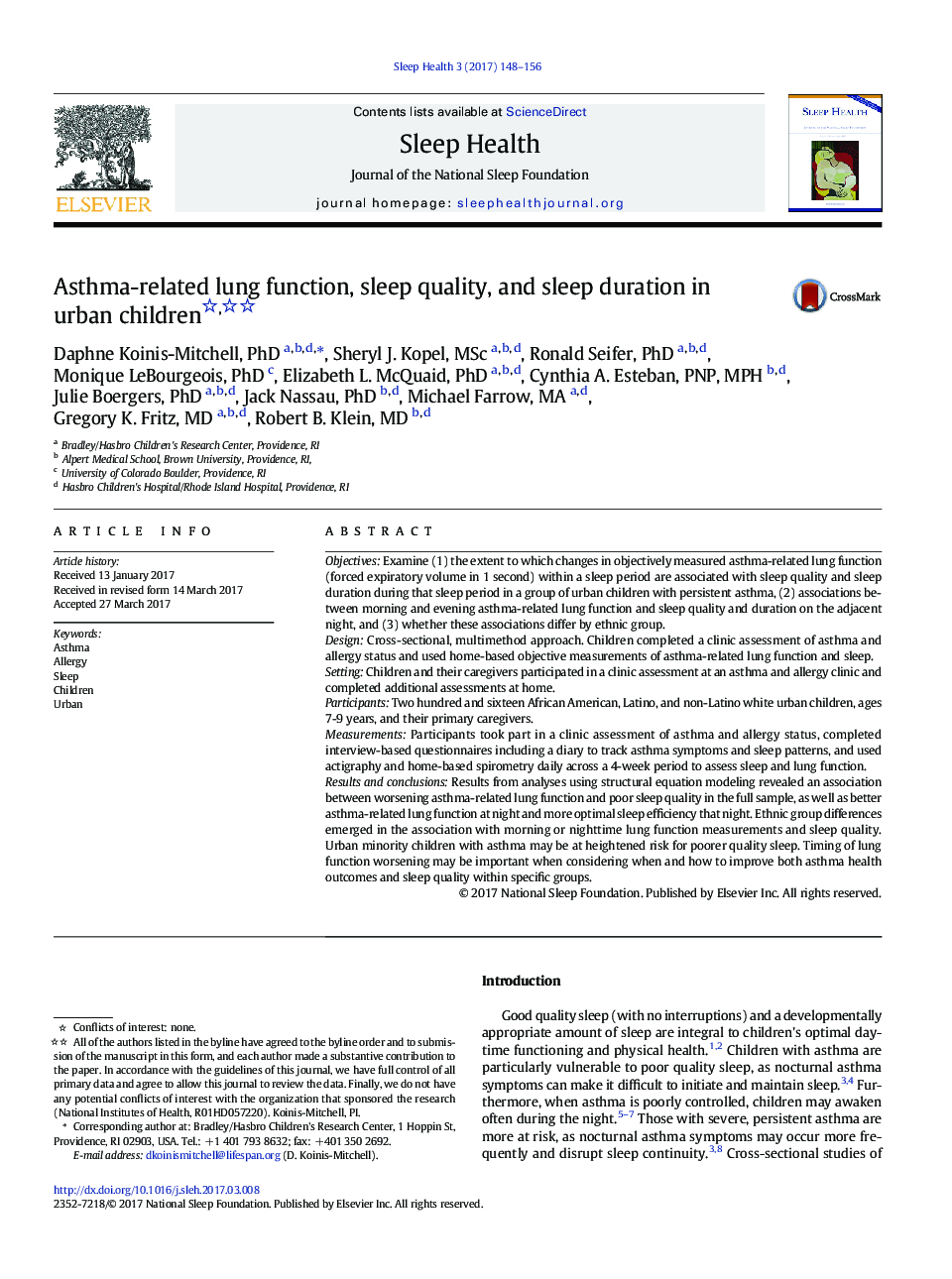| Article ID | Journal | Published Year | Pages | File Type |
|---|---|---|---|---|
| 5039585 | Sleep Health | 2017 | 9 Pages |
ObjectivesExamine (1) the extent to which changes in objectively measured asthma-related lung function (forced expiratory volume in 1 second) within a sleep period are associated with sleep quality and sleep duration during that sleep period in a group of urban children with persistent asthma, (2) associations between morning and evening asthma-related lung function and sleep quality and duration on the adjacent night, and (3) whether these associations differ by ethnic group.DesignCross-sectional, multimethod approach. Children completed a clinic assessment of asthma and allergy status and used home-based objective measurements of asthma-related lung function and sleep.SettingChildren and their caregivers participated in a clinic assessment at an asthma and allergy clinic and completed additional assessments at home.ParticipantsTwo hundred and sixteen African American, Latino, and non-Latino white urban children, ages 7-9 years, and their primary caregivers.MeasurementsParticipants took part in a clinic assessment of asthma and allergy status, completed interview-based questionnaires including a diary to track asthma symptoms and sleep patterns, and used actigraphy and home-based spirometry daily across a 4-week period to assess sleep and lung function.Results and conclusionsResults from analyses using structural equation modeling revealed an association between worsening asthma-related lung function and poor sleep quality in the full sample, as well as better asthma-related lung function at night and more optimal sleep efficiency that night. Ethnic group differences emerged in the association with morning or nighttime lung function measurements and sleep quality. Urban minority children with asthma may be at heightened risk for poorer quality sleep. Timing of lung function worsening may be important when considering when and how to improve both asthma health outcomes and sleep quality within specific groups.
